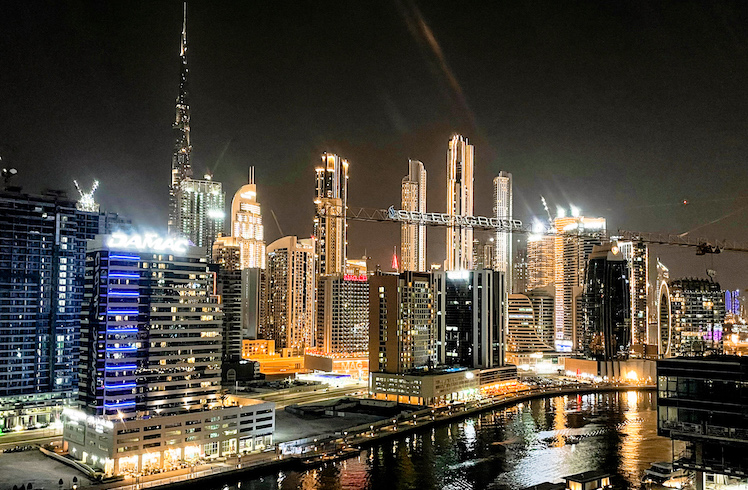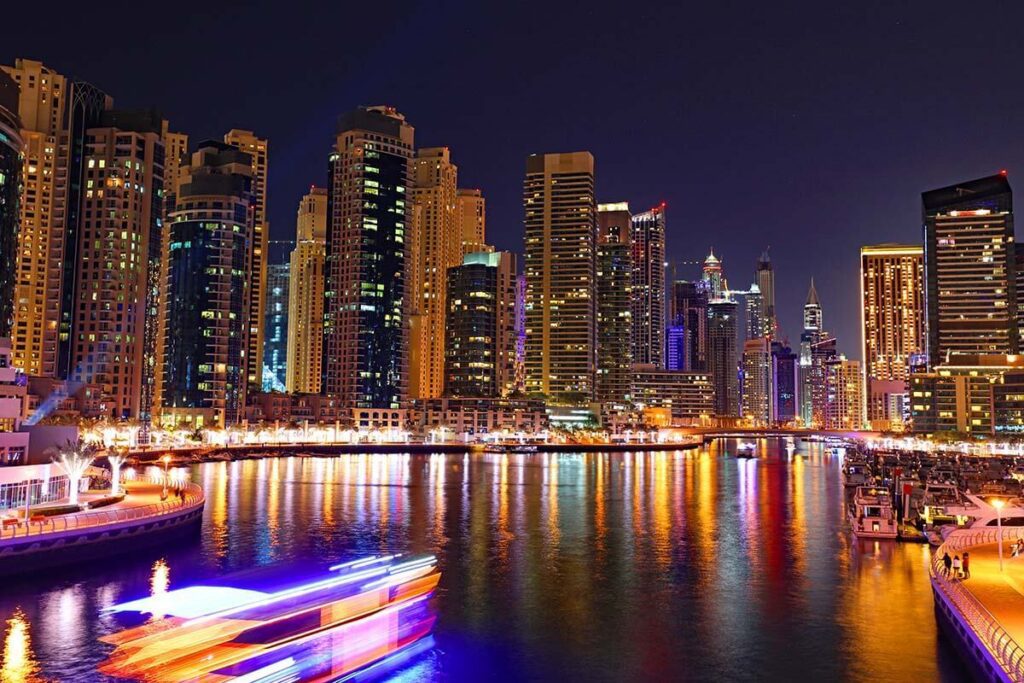Dubai continues to solidify its position as a global business hub with the introduction of the Dubai Free Zone Mainland Permit, a transformative initiative designed to allow free zone companies to operate seamlessly across the emirate’s mainland. This step reflects Dubai’s commitment to enhancing business flexibility, simplifying regulations, and creating a more integrated economic ecosystem.
For years, companies operating in Dubai’s free zones have enjoyed tax benefits, 100 percent foreign ownership, and a variety of business incentives. However, their activities were traditionally confined to the free zone itself, limiting direct engagement with mainland clients. The new permit changes this landscape, opening the door for a broader range of opportunities while maintaining the advantages of free zone registration.
Understanding the Free Zone Mainland Permit
What Is the Dubai Free Zone Mainland Permit
The Dubai Free Zone Mainland Permit is a legal authorization that allows companies registered in free zones to perform certain business activities on Dubai’s mainland without establishing a separate mainland entity. In essence, this permit bridges the gap between the free zones and the broader Dubai market, creating a more flexible business environment.

Previously, free zone companies could only operate outside the mainland unless they created a mainland branch or partnership, which often involved significant time, administrative effort, and financial cost. The new permit eliminates these barriers for eligible companies, enabling them to expand their operations and access new markets more efficiently.
Who Can Apply for the Permit
Most free zone companies are eligible to apply for the permit, except for certain specialized financial centers with unique regulations. This opportunity is particularly valuable for businesses in sectors such as consultancy, professional services, technology, and creative industries, which benefit greatly from mainland market access.

While the permit initially covers non-regulated activities, it is designed to accommodate a variety of business operations, and future updates may extend eligibility to regulated sectors. This gradual expansion ensures that businesses have a structured path to grow within Dubai’s dynamic economic framework.
Key Features of the Permit
Validity and Renewal
The permit is valid for six months and is renewable, offering companies flexibility and the opportunity to test mainland markets without committing to long term arrangements. This temporary yet renewable structure allows businesses to adapt their strategies based on demand and operational outcomes.
Cost Structure
The Dubai Free Zone Mainland Permit is designed to be cost effective. A relatively modest fee is charged for issuance, making it accessible to startups, SMEs, and established companies alike. The affordability encourages experimentation and expansion, removing financial hurdles that previously limited free zone companies from exploring mainland opportunities.
Scope of Activities
Initially, the permit allows for professional and service oriented activities. Companies can engage in consultancy, technology services, creative projects, and other non-trade operations. This ensures that the businesses benefiting from the permit align with Dubai’s broader economic diversification goals. Over time, authorities may expand the scope to include more regulated industries, creating a more inclusive framework for all sectors.

Strategic Benefits for Businesses
Expanded Market Access
One of the most significant advantages of the permit is the ability for free zone companies to interact directly with mainland clients. This opens the door to new contracts, partnerships, and projects that were previously inaccessible. Companies can now tender for government projects, collaborate with local businesses, and serve a wider customer base without the administrative complexities of establishing a mainland entity.
Simplified Operations
Before the permit, companies wanting to operate on the mainland faced the prospect of setting up a separate entity or branch office, which involved licensing fees, regulatory approvals, and legal requirements. The new permit simplifies this process by allowing free zone companies to maintain their existing registration while legally conducting mainland activities. This operational efficiency reduces administrative burdens, lowers costs, and saves valuable time.
Financial Advantages
Operating in both the free zone and the mainland under a single permit offers financial benefits. Companies can avoid the duplicated costs of maintaining two separate entities, including licensing fees, office rentals, and staffing requirements. This makes expansion more accessible to startups and small businesses while providing larger companies with a streamlined growth strategy.
Boosting Innovation and Collaboration
With easier access to mainland clients, free zone companies can explore innovative solutions, form strategic partnerships, and participate in collaborative projects. The permit encourages knowledge sharing and cross sector engagement, which can lead to more dynamic business models and competitive advantages in the marketplace.
Compliance and Legal Considerations
Tax Implications
While free zone companies benefit from tax incentives within their respective zones, operating on the mainland may have different tax implications. Companies should ensure compliance with applicable regulations to avoid penalties and maintain financial transparency. Proper consultation with legal and financial advisors is essential to navigate these complexities.
Regulatory Awareness
The Dubai Free Zone Mainland Permit currently focuses on non-regulated activities, but businesses should stay informed about potential changes in the regulatory framework. Authorities may introduce additional compliance requirements as the program evolves, particularly for sectors that are highly regulated or require special licensing.
Legal Structure and Liability
Although the permit allows free zone companies to operate on the mainland, the legal structure of the company remains based in the free zone. Businesses must understand how liability, contracts, and legal obligations apply under this new operational model to ensure smooth operations.
How the Permit Supports Dubai’s Economic Vision
Encouraging Foreign Investment
By offering free zone companies easier access to mainland markets, Dubai strengthens its appeal to foreign investors. The permit demonstrates the emirate’s commitment to creating a seamless business environment, reducing barriers to entry, and fostering long term investment.
Promoting Market Integration
The new permit is part of Dubai’s broader strategy to integrate its free zones with the mainland economy. This integration allows for more efficient allocation of resources, improved market efficiency, and enhanced competitiveness for all businesses operating within the emirate.
Supporting SMEs and Startups
Small and medium enterprises benefit significantly from the permit, as it allows them to scale their operations and reach new clients without significant upfront investment. Startups can test the market, develop a client base, and expand sustainably while maintaining the benefits of free zone registration.

Fostering Economic Diversification
Dubai’s economy has evolved beyond traditional sectors such as real estate and trade. By facilitating professional services, technology, and creative industries on the mainland, the permit contributes to economic diversification, encouraging innovation and creating a resilient business environment.
Step by Step Guide to Applying for the Permit
Step 1 Verify Eligibility
Companies must ensure they are registered in a Dubai free zone and that their business activities align with the non-regulated sectors covered by the permit.
Step 2 Prepare Documentation
Applicants typically need to provide corporate documents, proof of free zone registration, and details about the proposed mainland activities.
Step 3 Submit Application
Applications can be submitted to the relevant Dubai authority, following the streamlined process designed to minimize delays and administrative hurdles.
Step 4 Approval and Issuance
Once approved, the permit is issued for six months. Businesses can immediately begin conducting eligible mainland activities while ensuring compliance with the terms of the permit.
Step 5 Renewal and Expansion
Permits can be renewed, and businesses can monitor regulatory updates for potential expansion into additional sectors. This allows companies to gradually scale operations while maintaining legal compliance.
Success Stories and Potential Impact
Many free zone companies are expected to benefit from this permit. For instance, technology startups can now offer consulting services to mainland clients, professional services firms can expand their client base, and creative agencies can take on larger projects with more visibility. Over time, this is likely to drive more economic activity, encourage partnerships, and boost Dubai’s overall business ecosystem.
The permit also enhances competitiveness by leveling the playing field for free zone companies, allowing them to compete with mainland firms on equal terms. This move may attract more international businesses seeking a flexible and integrated business environment.
Conclusion
The Dubai Free Zone Mainland Permit is more than just a regulatory change; it represents a strategic step towards a more integrated, flexible, and competitive business environment in Dubai. By allowing free zone companies to operate on the mainland, Dubai has opened up new avenues for growth, innovation, and market access.
Businesses now have the opportunity to expand without the complications of creating multiple entities, reducing costs, and improving operational efficiency. At the same time, the emirate strengthens its position as a global hub for investment, professional services, technology, and creativity.
As Dubai continues to evolve, the Free Zone Mainland Permit is poised to play a pivotal role in fostering economic growth, supporting startups and SMEs, and encouraging collaboration across industries. Companies are encouraged to leverage this opportunity to explore new markets, innovate, and contribute to Dubai’s vision of becoming one of the most business friendly cities in the world.
Do follow UAE Stories on Instagram
Read Next – World Conservation Congress Opens Triumphantly with Khaled bin Mohamed bin Zayed















